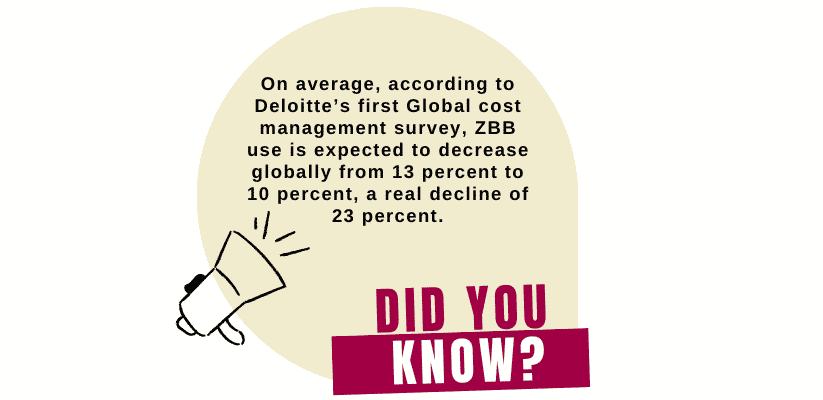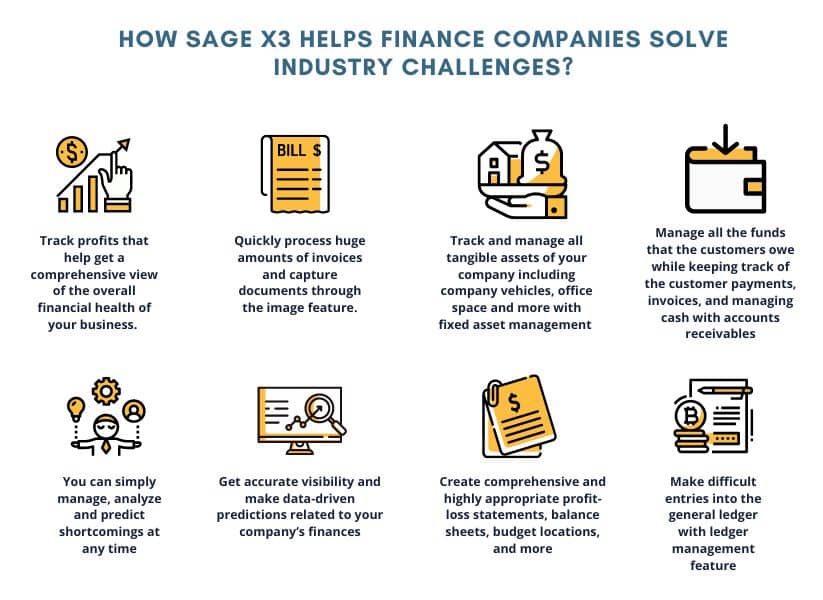Summary: The role of CFOs has changed significantly over the past decades. Today, they have a lot on their hands, from leveraging existing operations to aligning the company’s financial policies according to changing market trends and customer preferences. CFO trends are primarily dependent on two areas, namely:
a. Adopting best digital practices to achieve existing priorities.
b. Analyzing the changing financial trends to keep the organization’s financial goals on track.
This blog will share ten CFO trends that companies across industries should imbibe to build a successful CFO office.

1. Zero-based budgeting (ZBB)
Zero-based budgeting is quickly becoming one of the most important CFO trends. Let’s understand why?
The world is going through a financial crisis. And businesses need to think of alternative ways of achieving their financial goals in this ever-changing market. Therefore, CFOs are reimagining their financial strategy from a “zero-base” to get a fresh perspective on value creation, business blueprints, resource allocation, and workforce effectiveness in the future. A recent report by McKinsey revealed that 43% of 127 CFO respondents said they need to reorganize their overall budgeting processes to respond to business challenges quickly and efficiently.
ZBB models are enjoying massive popularity as they help CFOs bring down operational costs, achieve quick wins, and lay down effective business continuity principles. Moreover, recent AI and cloud systems developments are also accelerating the adoption of low-risk ZBB models.

2. Digital transformation across all business departments
Digital transformation accelerates innovation, automates manual work, and helps build robust and long-lasting customer relationships. So, forward-thinking CFOs are looking for ways to integrate the finance function with digital systems to achieve long-term financial goals. Current CFO trends suggest that finance leaders are more interested in bringing digital transformation to the sales & marketing domains. Widespread automation, hybrid-selling, and social media promotions are essential to business success today. CFOs must brainstorm effective strategies considering adequate money and resources for achieving this level of digital activity.
3. Workplace transformation
Automation and remote working have become a reality in today’s business ecosystem. So, CFOs are spending more on cloud-based solutions and business automation tools like Enterprise Resource Planning (ERP) software to increase business productivity and provide a flexible working environment.
New CFO trends suggest that organizations today are adopting Diversity, Equity, and Inclusion (DEI) principles to create a supportive workforce culture and implement the best hiring practices. As a result, CFOs should allocate resources to facilitate workforce repositioning, better use of talent, and offer world-class training. Modern CFOs also need to supervise the efforts of the HR and payroll teams to design employee-first strategies.
4. Better cash flow management
Above all, maintaining a positive cash flow is of utmost importance to any company. New CFO trends suggest that offices should create agile cash collection methods and optimization strategies to keep the cash coming in. Working capital inefficiency is one of the critical areas of the business that financial leaders want to address by establishing flexible cash flow models.
Moreover, in its recent survey, American Express India revealed that 2 out of 3 CFOs wish to pay attention to digitizing the payables and receivables management. The same report further reveals that 1 out of 2 CFOs wants to make better use of analytics for collection management. Modern cash flow management solutions streamline end-to-end processes, increasing profitability and providing a better experience for the company and customers.
5. Governance models and data visualization techniques
CFOs today rely on real-time data to make better financial decisions. A recent Accenture survey reveals that 99% of CFOs understand that real-time data is instrumental in managing disruptions. Still, only 16% believe that they can do so. Implementing the best quality data visualization and analytics tools is one of the most significant challenges CFOs are facing. The finance team can make better forecasts, optimize cash flow, and formulate error-free plans for multiple business units by receiving refined data from various sources. But it also requires establishing ground rules for data governance.
6. Forecasting models and tools
Accurate forecasts ensure positive growth across all business units, maximizing revenue. But making accurate forecasts using traditional methods is a big challenge. So, current CFO trends suggest using cutting-edge tools and techniques to reduce transactional accounting work. They help set realistic targets and manage time with periodic forecasting. Moreover, these models use the latest emerging trends and accurate financial data for making better decisions.
7. Real-time and predictive analytics
Modern CFOs are expected to steer the company’s future and carry out their everyday functions. Predictive analytics help CFOs forecast possible hazards, brainstorm strategies to prevent them, and engage with multiple stakeholders to find opportunities. Current CFO trends recommend relying on multiple data sets to extract analytical output to make better decisions. For example, CFOs examine business performance, identify emerging trends, and derive valuable insights using predictive analytics. The best part is that predictive analytics also generates values in allied business functions, including supply chain management, sales & marketing, customer relationship management, and detecting operational risks.
8. Inclusion of self-service finance tools
Finance automation is a buzzword these days and CFOs are finding ways to incorporate them into their business strategy. It includes integrating new-age tools and sending real-time updates to facilitate business operations and simplify financial transactions for customers. Moreover, CFO trends suggest that these tools also help to analyze, report, and perform data visualization, providing a high level of flexibility. Different predefined report templates, intuitive financial tools, and KPI dashboards allow CFOs to supervise each employee’s activity and establish a robust relationship with external stakeholders.
9. ESG metrics for business sustainability
Modern CFOs pay adequate attention to the environmental, social, and governance (ESG) metrics while framing their financial strategy. Today, consumers are more aware of the environment around them and prefer buying products from companies that care for the environment. Moreover, the global pandemic has also encouraged CFOs to adopt ESG policies as it helps enhance transparency with employees, customers, stakeholders, and investors. ESG metrics also show customers that you pay as much attention to protecting the environment as you pay to earn profits.
10. Increasing tech investments
Financial technology improvements enable CFOs to provide the facility of touchless transactions, which has significantly increased the penetration of financial services. Tech investments are also helping companies to automate their manual functions, increase productivity, cut operational costs, and allow employees to focus on mission-critical tasks.
Remote working is another area where investing is an excellent idea. Several organizations worldwide are adopting the remote working model, enabling employees to work from anywhere, anytime, and anyplace. Modern CFO trends suggest that Industry 4.0 technologies, including AI, machine learning, data analytics, RPA infrastructure, and cloud-enabled ERP software are a few cutting-edge technologies that organizations should invest in to become a market leader.





